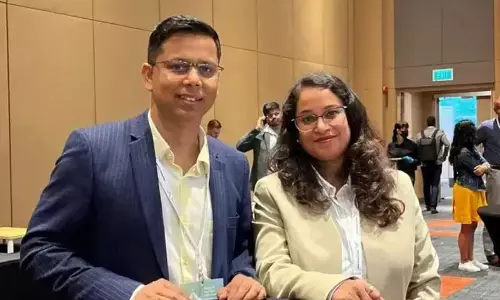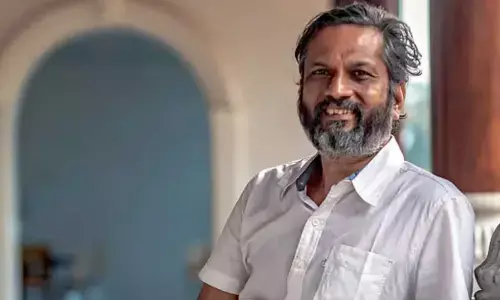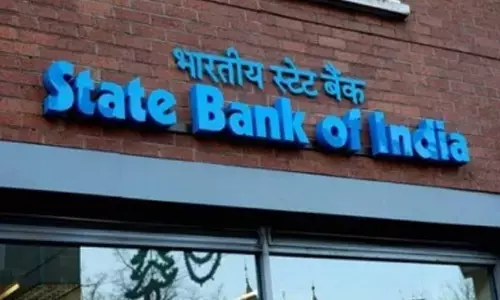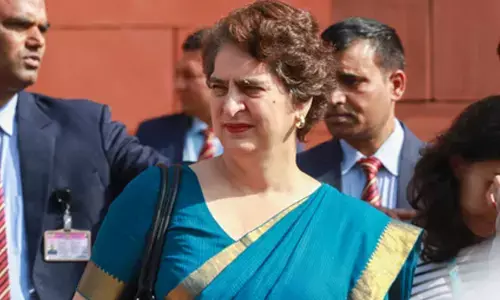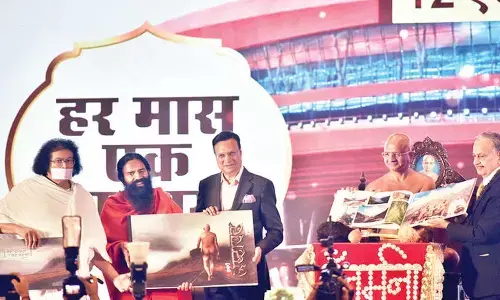3 generations fought for 40 yrs over 'kalasha', Lok Adalat resolves in four days
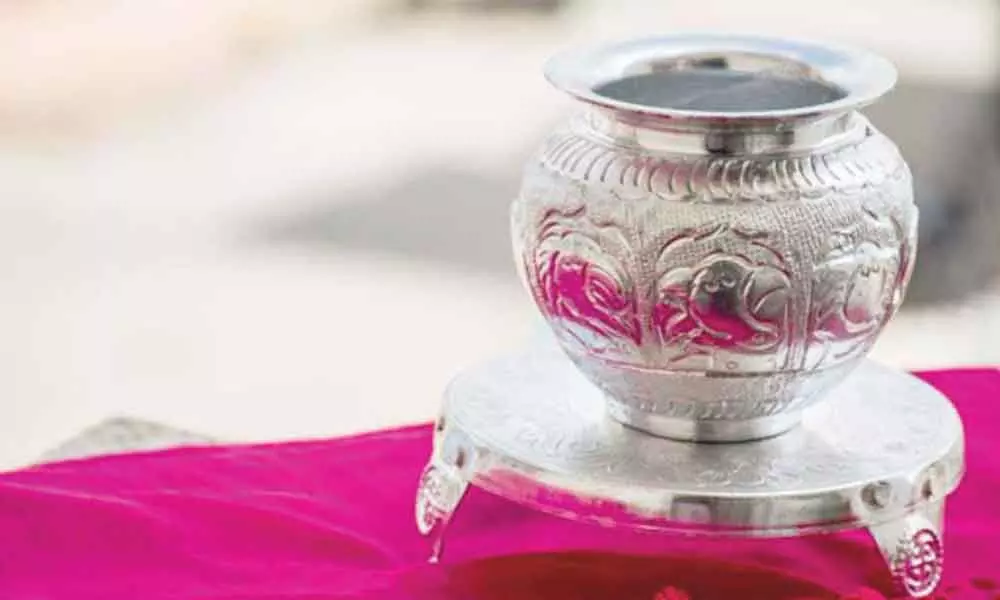
3 generations fought for 40 yrs over ‘kalasha’, Lok Adalat resolves in four days
Three generations from two adjacent villages in Karnataka fought over who should possess a 'kalasha' (holy pot) placed on a temple car during the annual fair of Garuda Siddeshwara temple, for nearly four decades.
Bagalkot: Three generations from two adjacent villages in Karnataka fought over who should possess a 'kalasha' (holy pot) placed on a temple car during the annual fair of Garuda Siddeshwara temple, for nearly four decades.
The feud was finally resolved last week in a district Lok Adalat through arbitration in a mere four days.
Kadlimatti and Mudapalajeevi are adjoining villages in Bagalkot district. These villages are located 480 km from Bengaluru.
According to Hindu belief, the 'kalasha' is believed to contain 'Amrita', the elixir of life, and thus is viewed as a symbol of abundance, wisdom, and immortality. The 'kalasha' is often seen in Hindu iconography as an attribute, in the hands of Hindu deities like the creator Brahma, the destroyer Shiva as a teacher, and the goddess of prosperity Lakshmi.
Bagalkot district legal services authority (DLSA) secretary, Hemalatha Basappa Hullur who facilitated the arbitration process told IANS that this dispute over who should own the 'kalasha' dates back to the late 1970s but a formal court case was registered only in 2007. "Multiple rounds of discussions lasted almost four days to resolve this emotionally attached case," she said.
"The dispute between two villages was all about who should own the 'kalasha', two generations fought over it and died. The third generation was continuing their legal battle, as authorities toiled hard for four decades to resolve but could not succeed in their attempts to convince either parties. As a result of this, the 'kalasha' used to be deposited in the district treasury and it used to be unlocked only during the annual fair of the villages and once the religious ceremonies were over by evening, the 'kalasha' used to be taken back to the same treasury and deposited again. This went on for several years," she said.
Raghvendra, a lawyer, who assisted senior lawyer, P.A. Kulkarni in this case, told IANS that the main reason for the dispute was the temple which is situated in Lavaleshwara tanda, which is in between these villages.
"Around 50 years ago, a 'Mutt' seer had toured across six villages - Kadlimatti, Mudapaljeevi, Acahnuru, Bennuru, Shiragumpi and Herkal - to raise funds to build a temple and also a temple cart. As per his plans all villagers donated generously but Kadlimatti's contributions were highest among all villagers as a result of this, elated Ingalgi Matha seer assured that main 'kalasha' of the temple car will be retained with Kadlimatti, who will have the privilege of worshipping it throughout year," he explained.
One of the petitioners on behalf of Kadlimatti villagers, Vitthal Majjige, told IANS that it was ironic indeed that in the frivolous ego battle between both villages, the 'Kalasha' was paying the price of being locked up in a dark room. "Ideally it should be worshipped on a day-to-day basis but for our ego battle, it had remained in locked up status for nearly four decades. Therefore, we all villagers from both sides came to an agreement that now the 'kalasha' can be stationed in the main temple in Lavaleshwra, where priests will perform all rituals and devotees can have free 'darshan'. But for one condition, during the annual fair Kadlimatti devotees will have the first right to offer pooja in Kadlimatti and it will go in procession from here to Mudaplajeevi village, who will welcome it and it will be taken in procession and placed on top of the temple car," Majjige said.
He added that but for this dispute, none of the villagers from either side had any dispute; they fought elections together and had cordial business relationships from day one of the dispute starting in the late 1970s.
Mallaiah Poojari of Mudaplajeevi village and one of priests of this temple told IANS that all he wanted was that the 'kalasha' gets its due respect. "It was heartening to see that authorities bringing in police custody and taking it back in police security. I was a young child when this dispute began. My grandfather and my father both craved to offer pooja on daily basis to this 'kalasha' but they could not do so in their lifetime. At least am happy that I am getting that honour," he said emotionally.
According to him, the dispute over the 'kalasha' started when Mudapljeevi villagers came to know about Ingalgi Mutt seer's decision to give the honour to Kadlimatti vi.
"At last this ego battle has ended on a good note and that is more than a fulfilling experience in itself," the priest said. IANS








